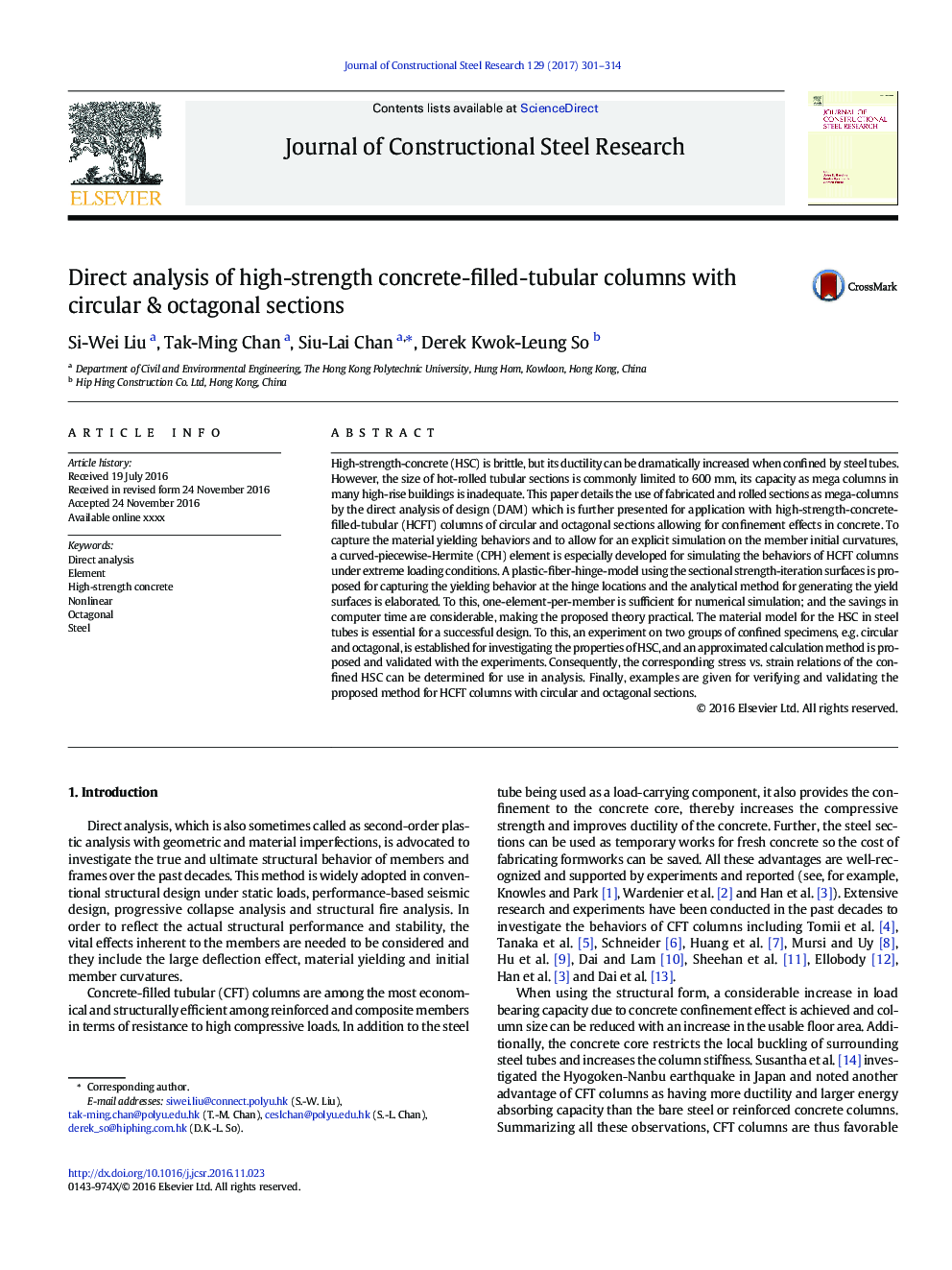| Article ID | Journal | Published Year | Pages | File Type |
|---|---|---|---|---|
| 4923569 | Journal of Constructional Steel Research | 2017 | 14 Pages |
Abstract
High-strength-concrete (HSC) is brittle, but its ductility can be dramatically increased when confined by steel tubes. However, the size of hot-rolled tubular sections is commonly limited to 600Â mm, its capacity as mega columns in many high-rise buildings is inadequate. This paper details the use of fabricated and rolled sections as mega-columns by the direct analysis of design (DAM) which is further presented for application with high-strength-concrete-filled-tubular (HCFT) columns of circular and octagonal sections allowing for confinement effects in concrete. To capture the material yielding behaviors and to allow for an explicit simulation on the member initial curvatures, a curved-piecewise-Hermite (CPH) element is especially developed for simulating the behaviors of HCFT columns under extreme loading conditions. A plastic-fiber-hinge-model using the sectional strength-iteration surfaces is proposed for capturing the yielding behavior at the hinge locations and the analytical method for generating the yield surfaces is elaborated. To this, one-element-per-member is sufficient for numerical simulation; and the savings in computer time are considerable, making the proposed theory practical. The material model for the HSC in steel tubes is essential for a successful design. To this, an experiment on two groups of confined specimens, e.g. circular and octagonal, is established for investigating the properties of HSC, and an approximated calculation method is proposed and validated with the experiments. Consequently, the corresponding stress vs. strain relations of the confined HSC can be determined for use in analysis. Finally, examples are given for verifying and validating the proposed method for HCFT columns with circular and octagonal sections.
Related Topics
Physical Sciences and Engineering
Engineering
Civil and Structural Engineering
Authors
Si-Wei Liu, Tak-Ming Chan, Siu-Lai Chan, Derek Kwok-Leung So,
